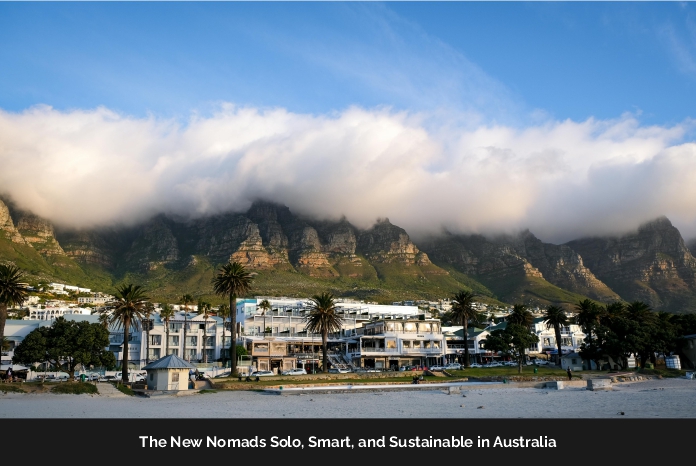Travel in 2025 is different. It’s more deliberate, more personal, and more conscious than ever. Throughout Australia, a new type of traveler is emerging—single travelers who are driven by exploration, fueled by technology, and inspired by a deep passion for the planet. These so-called new nomads are not just traveling through destinations; they’re engaging with them, discovering them, and leaving smaller footprints in their wake.
The Emergence of the Independent Traveler
Those solo travel days as a dashing or lonely encounter are gone. Nowadays, it is a dignified manner of self-discovery. In Australia, cities and destinations are rapidly becoming solo-friendly, with welcome, safe, and rewarding experiences for travelers who travel alone.
From Melbourne laneway street artwork to Noosa’s peaceful beaches, independent travelers are discovering destinations welcoming solitude and yet still meeting others. Boutique hostels are becoming co-living networks, with shared kitchens and community events bringing friendship. Day trips, art classes, and local gatherings make it simple to balance solitude with social interaction. For all of us, solo travel is not loneliness—it’s independence to travel on your terms, do what you want, and relish the luxury of apology-free travel.
Intelligent Travel, Effortless Trips
This revolution is arriving quietly, thanks to technology. AI-powered travel apps make it possible for individual travelers to plan wiser, more secure, and more personalized journeys. From real-time travel suggestions to language translation assistance and crisis assistance, these apps make mobile phones great travel companions.
Navigation is second nature, with travelers able to explore fearlessly into new cities or bushwalking trails. Gourmet navigation by taste and heritage allows for the discovery of insider knowledge—whether that is a secret café in Hobart or a secret lookout in the Grampians.
But the real wonder is the way that technology is making spontaneity possible. With travel to accommodations all available to book on the fly, independent travelers can alter their plans in the moment, on the whim and the weather as well.
Sustainability as a Way of Life
Most typical of the new nomads is probably going to be sustainability. In 2025, sustainable tourism is not hip—it’s the norm. Around Australia, travelers are choosing authentic experiences, from camping overnight at solar-powered eco-lodges to shopping at Indigenous-owned outlets.
Slow travel—staying longer in fewer places, public transportation, and interacting with locals—is the option for the majority. Others partake in regenerative tourism pursuits, including wildlife conservation initiatives or reef restoration efforts.
Even the smallest choice—like carrying refillable water bottles, eating vegetarian meals, or patronizing local bazaars—embodies a larger mindset: not one that sees traveling as a means of flight, but rather as a necessity.
A Journey Inward and Outward
What unites them is a hunger for meaning. They’re not marking their passports—they’re marking their minds, hearts, and souls. It might be an early-morning bushwalk in the Blue Mountains, a chat with an artist in Alice Springs, or a peaceful night writing by the campfire, but experiences like these don’t just create memories, they create people.
Australia today is not a place one goes to anymore, but a reflection, a lesson, and a friend to those who go there with purpose. The new nomads are not watching the world go by; they’re finding themselves in the process.





